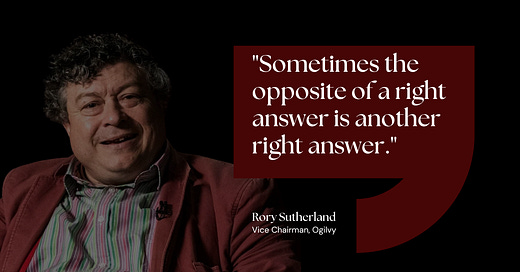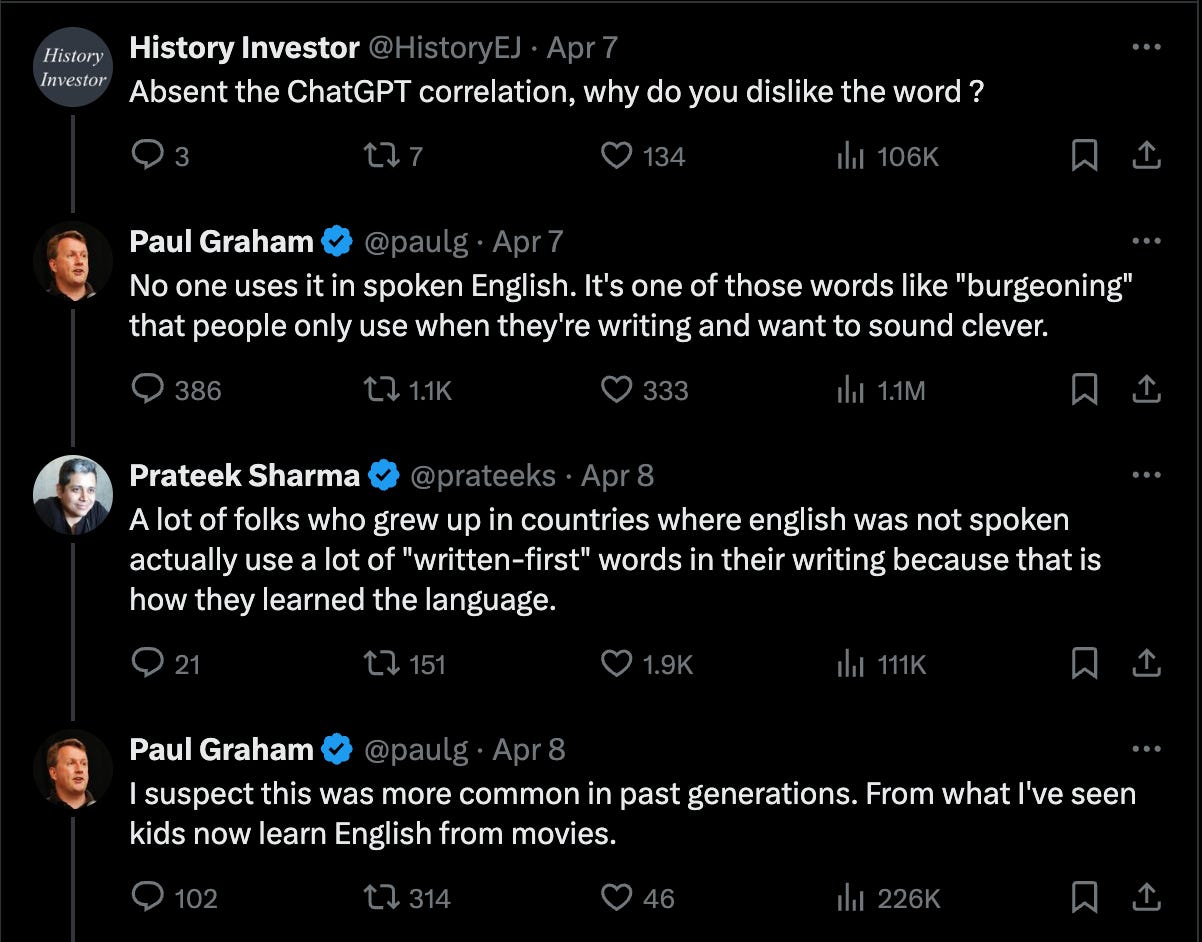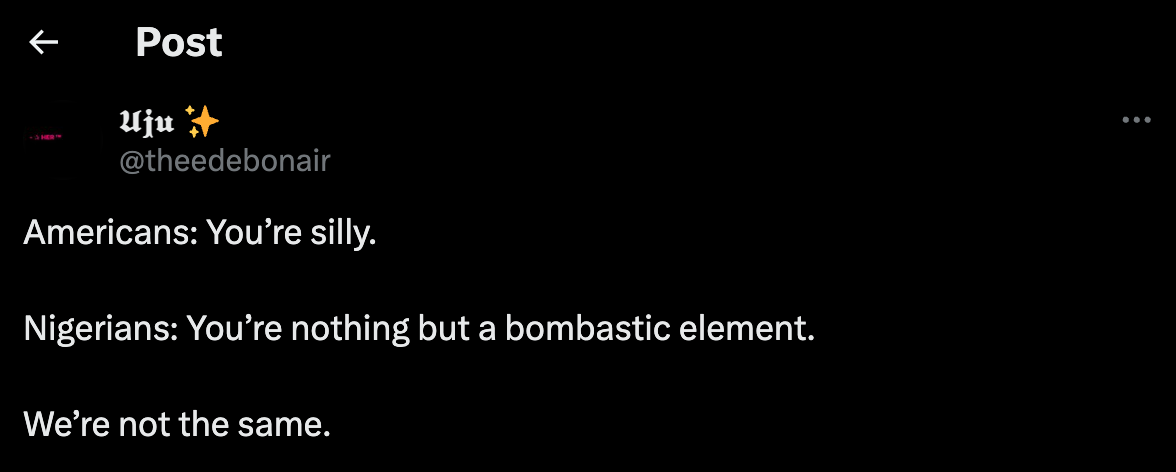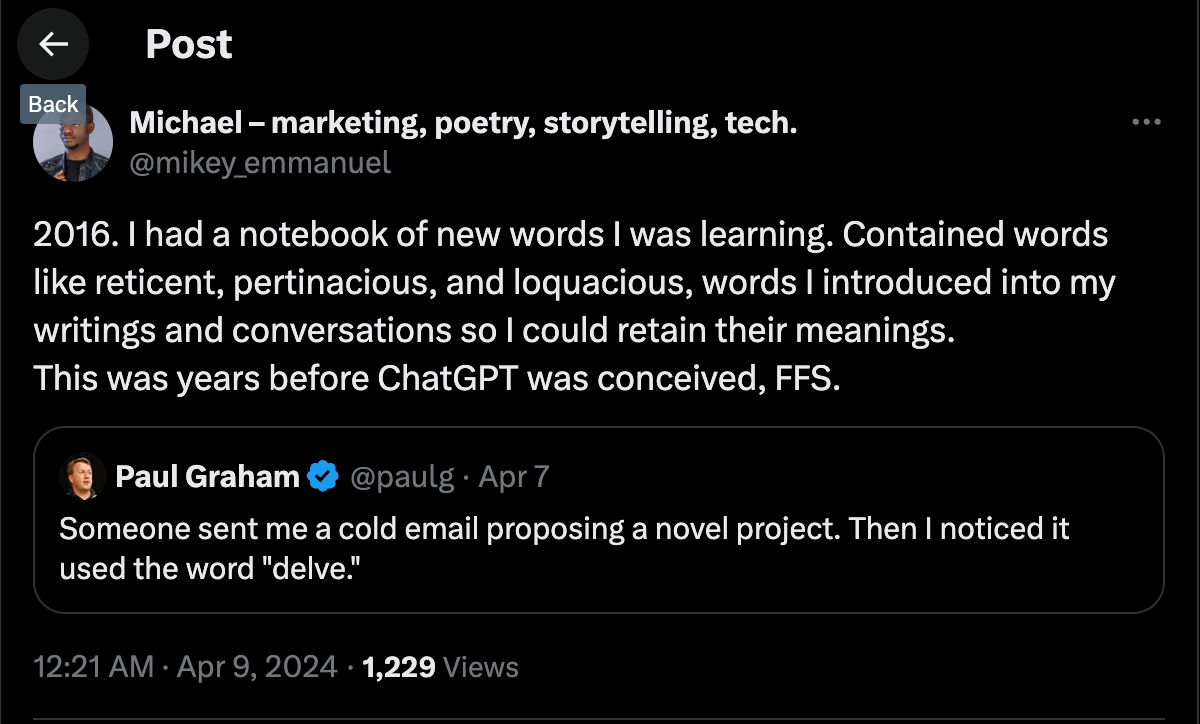"Delve" and Other Words That Show How English Differs Across The World
Let's delve into it.
Hello, I'd really like to grow this email list. If you enjoy this newsletter, it would mean the world to Jola and I if you encouraged one friend/fellow immigrant/colleague to subscribe…Very likely, the the only thing you will get in return is warm fuzzy feelings, and if I can attribute it to you, I’d personally send you a thank you email.
Yesterday, Paul Graham—a famous computer scientist and co-founder of YCombinator — tweeted that he’d received a cold email from someone using the word “delve.”
According to Paul, “delve” is a ChatGPT tell.
In response to the tweet, many people [mostly folks from countries colonized and educated under the British system] pointed out that “delve” is a common word used in everyday conversation in certain parts of the world.
Paul responded, saying people don’t use words like delve and burgeoning in “spoken English.”
The replies to Paul’s tweet shed some light on the cultural nuances in how people wield the English language.
Here are some interesting responses we found:
1) How Americans say “I give up” vs. Nigerians
2) How Americans say congratulations vs. Nigerians
3) On grief
4) How we express incoming trouble
5) Another name for lawyers?
6) “Compare and Contrast”
7) How do you tell someone you don’t want them around?
8) Or that they should stop pacing
9) What if you want them to stop feeling nervous?
10) How we express confusion
11) And how we correct each other
12) How we say you’re trying to be cunny vs. Americans
13) A personal favorite: expressing shock at [someone’s] audacity
The initial tweet and the resulting conversation highlight a few things.
Firstly, different cultures interact with the English Language differently, so what’s expected in one context can appear foreign in another. It doesn’t necessarily mean one is better than the other.
Secondly, if someone uses words in a way you’re not familiar with, it doesn’t necessarily mean they’re trying to be pretentious or clever. It might just be their reality.
Cough and catarrh are quite commonplace words in some countries.
Lastly, even if ChatGPT or other LLMs use words like “delve,” at the end of the day, they were trained on human language data and not some foreign language.
So what’s the big deal?
References:



























Being open-minded seems to be a virtue. Diversity in thought, expression and people exist for a reason. And what a beautiful thing it is to experience and appreciate diversity, rather than look down on it. Better to admit ignorance and a choice to remain in one's comfort zone of knowledge and perspective than to condemn.
We really need to open our minds and realize that our frames of references are only but a tiny drop in the world's beautiful ocean of people and their cultures!